-
Signs That Your Building Needs to Be Re-Wired
Many older buildings, both residential and commercial, need rewiring near San Jose . The aluminum wiring that was widely used in the 1960s and 1970s is not safe for use in today’s homes, with their increased use of electricity, and the even older style of knob and tube wiring can be quite unsafe as well.
Pay close attention to electrical function in your home or commercial property to determine if you need a licensed electrician. Flickering lights, frequent circuit breaker trips, and other seemingly minor problems can all indicate faulty or outdated wiring. Also, if you find that you do not always have enough available outlets and you are using power strips or extension cords, it might be safer to rewire the building and increase the number of receptacles. Excessive sparking or a low hum coming from your electrical panels also point to bad wiring that needs to be replaced. If you notice any of these symptoms, schedule an electrical safety inspection with a licensed electrician so he can examine your wiring and recommend a fix.
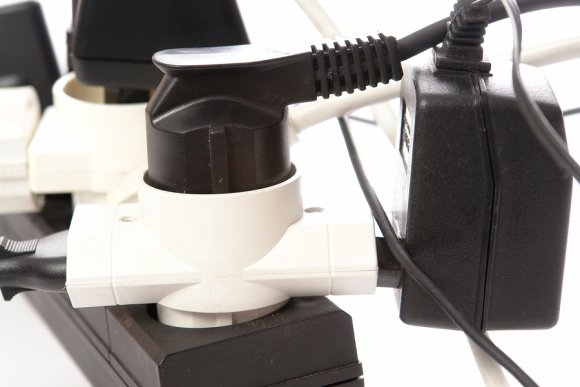
-
Understanding the Importance of Your Circuit Breaker
Some people may still call them “fuse boxes,” though most homes and office buildings have circuit breakers in San Jose. These panels are crucial to the function of any modern building, since they prevent circuits from overloading, which in turn prevents damage to the wiring and electrical fires. Only a licensed electrician should attempt to repair or replace a circuit breaker . Find out more about this critical piece of electrical equipment by reading on.
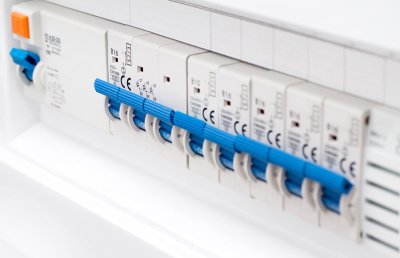
Modern Circuit Breaker Design
The original design for home electrical panels were indeed fuse boxes. Fuses contained filaments that would melt when overheated, interrupting the circuit and preventing a fire or overload. Fuses needed to be thrown out and completely replaced when they “blew out,” so homeowners needed to keep a supply of them on hand or call a residential electrician when this happened. Modern circuit breakers contain switches that trip, allowing you to restart the circuit simply by flipping the switch.Signs of a Circuit Breaker Problem
If you find that breakers in your home or commercial property frequently trip, cutting off power to a certain section of the building, you should call an electrician for an electric safety inspection as soon as you can. This can be a sign of faulty wiring or an overloaded breaker. Beyond the inconvenience of constantly having to visit the breaker box to flip the switches, these problems can lead to sparking, electrical fires, and other serious dangers. The circuit breaker should be a safety feature, not a safety hazard.Solutions for Breaker Problems.
Often, an electrician can fix your breaker problems simply by rewiring the panel. In some cases, however, your building may need electrical panel upgrades. Today’s electrical usage, with computers, phone chargers, televisions, broadband routers, and much more, far exceeds that of even two decades ago. To bring you up to code, an electrician may install smaller sub-panels, or upgrade your circuit breaker to a larger size that can handle the increased load on the system. -
Home Electrical Safety Tips
Your home’s electrical supply is one of its most important systems. In order to ensure that your home is safe for you and your family, it is a good idea to be on the lookout for the signs of an electrical problem. For example, you may notice that your lights flicker or dim when your home has an electric panel issue. In addition, you can also check to see of your circuit breaker panel feels hot to the touch. An electrician serving San Jose can provide you with a complete range of electrical services. By hiring an electrician for your rewiring or electric panel upgrade, you can ensure that your home is safe for you and your family. To highlight the advantages of working with a residential electrician to keep your home safe, be sure to watch this video from Angie’s List.
-
Factors to Consider When Hiring an Electrician
Your home’s electrical supply is made up of a series of highly sophisticated components. When you experience an electrical problem with your junction box, circuit breaker panel, or other system, it is essential to hire a qualified electrician to get the job done right. In order to become an electrical contractor, an electrician must undergo many hours of training. By hiring a qualified electrician serving San Jose , you can rest assured that your electrical repairs will be performed safely, effectively, and efficiently. To help you get started on your next electrical project, here is a look at some handy tips for hiring an electrician.

Licensed electrician performing residential electrical repairs in San Jose, CA
Up-To-Date Training
When you are considering hiring an electrician, it is important to choose a contractor that stays up to date with all training and education. Ideally, an electrical company will send their contractors to semiannual training courses. In addition, your electrician should have information about all of the latest updates to the National Electrical Code. By staying up to date, an electrician will be able to provide you with best possible services.Permits
Along with researching the training and qualifications of your electrician, you may also want to explore the permit requirements in your area. When a significant electrical project is being performed, you may be required to get a permit with your city or county. You may want to ask your electrician whether a permit is included in the cost of your services.Licensing
To ensure that you are hiring a reputable electrician for your repair project, you may also want to look into the contractor’s licensing. In order to legally work as an electrical contractor, an electrician must be licensed with your state. If your electrician does not have a current license, this could be a warning sign of the potential of improper workmanship. A fully licensed electrician with great reviews will be sure to provide you with the best available electrical services. -
Spotlight on Electrical Safety Inspections
The spring season is right around the corner, and now is a great time to schedule an electrical safety inspection with an electrician in San Jose. There are many benefits to electrical safety inspections. By having a residential electrician take a look at the electrical system in your home, you can catch small repair problems before they become major issues. In addition, a safety inspection from your home electrician can also protect you and your loved ones from potential electrical dangers, such as faulty wiring or an electrical fire. Finally, a safety inspection will provide you with total peace of mind at home. During your inspection, a licensed electrician will carefully review every major aspect of your electrical system. If a problem is found, you will be able to schedule immediate repairs. Overall, an electrical safety inspection is a terrific service to incorporate into your yearly spring maintenance routine.
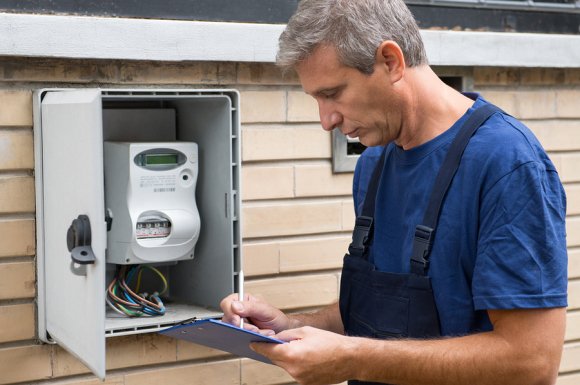
-
Issues That Require an Electrician [INFOGRAPHIC]
If you’re like many people, chances are you don’t give much thought to your home’s electrical system—unless something is going wrong. You rely on electricity in your house to get you through your day, so if there is a malfunction, it can be frustrating and inconvenient. Many common electrical issues can be fixed with relative ease by a residential electrician near San Jose . If you have an electrical outlet that no longer works, an electrician can replace it for you to greatly reduce the risk of an electrical fire. Too many appliances working at the same time can overload a circuit, so ask an electrician about installing a separate circuit to avoid this hassle. Take a look at this infographic to learn more about common electrical problems that require the attention of an electrician. Please feel free to share this info with your friends and neighbors!

-
Understanding How Your Home Electrical Panel Works
When an electrician comes to your home to perform repairs, he may need to access your circuit breakers and electrical panel . Since most electrical panels are covered by doors, this part of your electrical system may seem like somewhat of a mystery. To get the most of your home electrical repairs, you should be sure to learn more about the basics of how your circuit breaker panel works. A licensed electrician in San Jose will be able to answer all of your questions about your electrical system. Here is a quick look at the basics of how your electrical panel works.
Panel of Fuses
When you open the door to your electrical panel, the first thing that you will notice is a panel of fuses. These fuses are also commonly referred to as circuit breaker. Each fuse is connected to the electrical supply in a certain area of your home. If you suddenly lose power to an area of your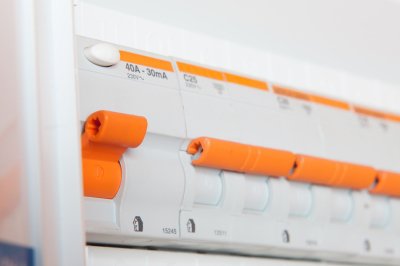 house, you may need to flip a circuit breaker to restore your electrical supply. After you open your electric panel, you will also be able to determine the total amperage capacity of your home’s electrical system .
house, you may need to flip a circuit breaker to restore your electrical supply. After you open your electric panel, you will also be able to determine the total amperage capacity of your home’s electrical system .Main Power Switch
Along with the many different circuit breakers that are connected to different areas of your home, your electrical panel will also contain a main power switch. The main power to your electric panel is typically located at the top of the unit. If your home requires extensive electrical repairs, your electrician may use this switch to temporarily cut the electrical supply to your home.Power Connection
Your electric panel receives electricity directly from your city’s municipal supply. The electric wires on your street are connected to the electric meter on your home’s exterior. Once electricity flows into the meter, it is sent to your electric panel through a series of wires. -
A Guide to Hiring an Electrician in San Jose
People generally rely on their electrical supply for a multitude of purposes in this day and age. The misuse of your circuit breaker in San Jose can leave you ordering take out food and missing your favorite television shows. Since electricity is so important to our daily lives, it is important to hire the right electrician to make sure you are taken care of. Here is a guide to hiring an electrician .
Research Thoroughly
When it comes to hiring a professional for any kind of job that may affect the overall comfort and convenience of your home, it is critical to find a trustworthy professional who will complete the job to your satisfaction. The best way to ensure that you are choosing the right electrician is to perform thorough research into your possibilities. The Internet is full of resources that you can use to compare reviews between different electricians; this allows you to find out what the people are like personally, how prepared and efficient they are, and whether or not they deal with dedicated circuits. There are many websites that you can access that offer unbiased reviews and opinions of customers who have used different services. Ask your friends and family if they have an electrician that they enjoy and find out if he or she would be a good fit for you.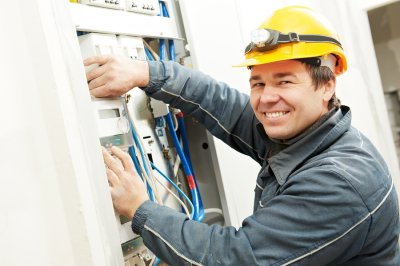 Ask the Right Questions
Ask the Right Questions
It is always a good idea to meet with an electrician before deciding to hire. This affords you the opportunity to see each other face to face and allows you to personally ask any questions you may have. Find out exactly what services the electrician offers, such as electric panel upgrades and circuit breaker services. Find out if the electrician is available around the clock or only at certain times; emergency services may prove useful if you find yourself with a power outage in the middle of the night .Know What You Are Agreeing To
Always be completely sure of what you are agreeing to before signing anything. Read and reread any contracts that you may have drawn up and be sure that there are no surprises waiting for either side. -
A Look at Electrical Wiring Codes
The electrical power used by your home is a complex system that makes use of many components including electric panels, dedicated circuits, and circuit breakers in San Jose. If any electrical components are installed or maintained improperly, severe consequences may result. Watch this video clip for a look at electrical wiring codes.
Residential electrical wiring codes ensure that your home is powered consistently and wired safely in order to minimize your chances of experiencing fires, short circuits, or other potential dangers. There are different factors in play when it comes to electrical wiring inside the home, especially considering the varying amounts of voltages that different appliances use. In the case of a home renovation or a home construction there are certain tasks that homeowners may perform and there are other tasks that can only be handled by a licensed electrician. You can find out about these specific tasks by contacting your local building codes department.
-
A Brief Overview of Residential Electrical Systems in San Jose
Residential electrical systems rely on a number of components and are regulated in several different ways. If you find yourself having problems with your home’s dedicated circuit, electric panel, or circuit breaker in San Jose, it is typically best to call a qualified electrician . Here is a brief overview of residential electrical systems.
The electricity that powers the appliances within your home comes from electrical lines that connect from the street to your meter box. Electricity is then transported to your electric panel where it can be manipulated by the homeowner or electrician. A certain number of amps are supplied and then divided between rooms of the home. The residential electrical system comes with certain protective features like circuit breakers that stop the flow of electricity in the case of a wire shorting out. Smoke alarms also work in communication with one another to alarm the entire household of a fire. A new home must undergo more than one inspection by a professional electrician before the house can be deemed safe for occupancy. Some homes make use of advanced wiring systems for appliances that need an abundance of power such as entertainment systems.
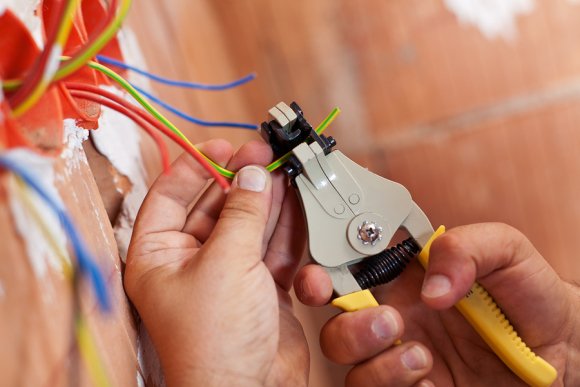
RECENT POSTS
categories
- Uncategorized
- Delta Electric
- Commercial Electrical
- Residential Electrical
- Electric Circuits
- Dedicated Circuits
- Circuit Breakers
- Electrical Panels
- Electrical Wiring
- Safety Inspections
- copper wires
- Electrician San Jose
- Trained Electricians
- Electrical Services San Jose
- Malfunctioning Electrical Outlets
- Circuit Breaker
- Grounding
- safety
- Flickering Lights
- Arc Fault Breakers
- electrical system
- Aluminum Wiring
- Circuit Interrupters
- House Surge Protection
- Zinsco Panel Warnings
- Wiring Conversion
- GFCI outlet
- professional electrician
- Knob-and-Tube Wiring
- modern home electrical system
- Fuses
- Electric Car Charger
- Electrical Repair
Archives
2025
2024
2023
2018
2017
- December (4)
- November (4)
- October (5)
- September (4)
- August (4)
- July (4)
- June (4)
- May (4)
- April (4)
- March (3)
- February (4)
- January (3)
2016
- December (3)
- November (4)
- October (4)
- September (4)
- August (4)
- July (4)
- June (4)
- May (4)
- April (4)
- March (4)
- February (4)
- January (4)
2015
- December (4)
- November (4)
- October (4)
- September (4)
- August (3)
- July (4)
- June (4)
- May (3)
- April (4)
- March (4)
- February (2)
2014
- December (3)
- November (4)
- October (4)
- September (6)
- August (2)
- July (3)
- May (2)
- April (1)
- March (2)
- February (1)
- January (1)

